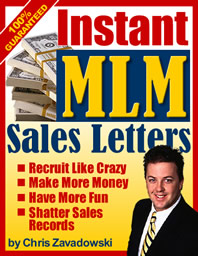 Lookin’ for Luck in all the wrong places.
Lookin’ for Luck in all the wrong places.
The Irish are a very superstitious lot. They believe a black cat voluntarily following you home brings good luck, but bringing a black cat home, or even moving one with you from old house to new, curses you with bad luck forevermore. There are so many Irish superstitions about good and bad luck and blessings and curses, they fill a book.
I’m Irish. I don’t make a big thing out of it. Sometimes, on St. Patrick’s Day, I even forget to wear green. But my racing silks (I drive professionally in 200+ harness races a year) have a big green shamrock on them, and I have been known, after winning a couple races, to get attached to a lucky whip – until I again lose a race.
I have my little superstitions and lucky objects and rituals; indulgences; for racing, selling and speaking. But I know (and constantly remind myself) that luck has very little to do with outcomes, and that we pretty much manufacture our own luck – bad or good.
Usually by behavior, occasionally merely by attitude or thought.
People prefer looking at bad luck as purely circumstantial, yet if probed deeply and objectively enough, there’s choice involved. For example, when our very spoiled pet, who we affectionately call The Million Dollar Dog came up lame in her good rear leg and hip, and needed emergency surgery – delaying my wife’s travel plans, was this a week of bad luck?
The Million Dollar Dog already had this same surgery in the other leg, three years ago. This breed of dog is well-known for such problems, and she did pick the dog. That’s not to say I think a different choice should have been made; I do not; I wouldn’t trade this dog for any other on earth. It is to say, though, that the week’s trouble has little or nothing to do with bad luck, but with dog genetics, and human choice.
Belief in luck and all the superstitions that go with it, and variations of it to which we assign different names and terminology, clouds the core reality of success and failure: that it is up to the individual.
The Renegade Millionaire Way is acceptance of responsibility; more responsibility for more things more often and more readily than the 95% crowd wants anything to do with – not because we are masochists, but because we know a secret: responsibility equals control, control is product of responsibility, and we definitely do want control.
When it comes to the category of ‘information’, whether acquired by attending a college, buying books, attending seminars, engaging a consultant or coach, etc., most people are eager to place the responsibility for outcomes on the information itself or the provider of the information.
The kid with the Master’s Degree in 16th Century Literature asking you if you want fries with your Hero-burger blames the University of Finkelstein or his high school guidance counselor for his fate. But truth is, all information is neutral but for personal, targeted application, and all providers of information are, at best, informed, interesting provocateurs. Me included.
If you want control over the outcomes in your life to be achieved via productive use of information, you can only get it to the same extent you are willing to embrace responsibility for those outcomes.
Then there is the eagerness and ease with which businesspeople have, in recent few years, been transferring responsibility to the recession and its assorted evils. For some, a ‘bad’ economy is actually obvious “good luck” and presents opportunity. Most view it as “bad luck”. But it is neither, in and of itself. It is for each person what he permits it to be and makes of it.
Most look for luck in all the wrong places. If you are familiar with Russell Conwell’s famous speech, oft-published as a book, titled Acres of Diamonds, you’ll know where to look. Clue: that source is very close at hand.
– By Dan S. Kennedy, serial entrepreneur, from-scratch multi-millionaire, speaker, consultant, coach, author of 13 books including the No B.S. series, and editor of The No B.S. Marketing Letter. FOR A SPECIAL FREE GIFT FROM DAN FOR YOU including newsletters, audio CD’s and more: visit: www.FreeDanKennedyNewsletter.com

 Click Here to Comment
Click Here to Comment




Recent Comments